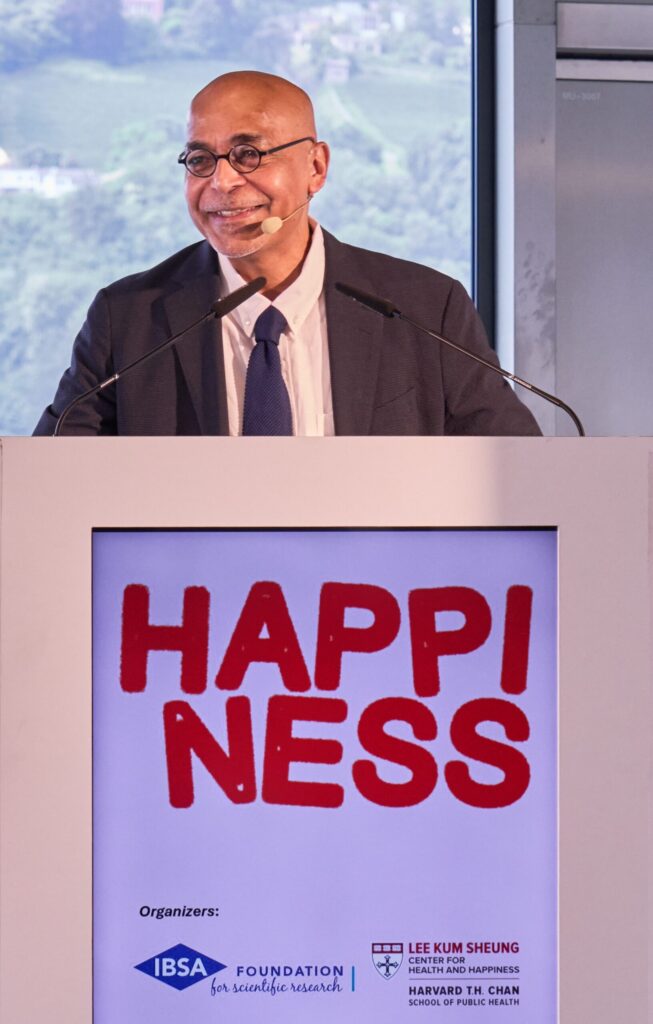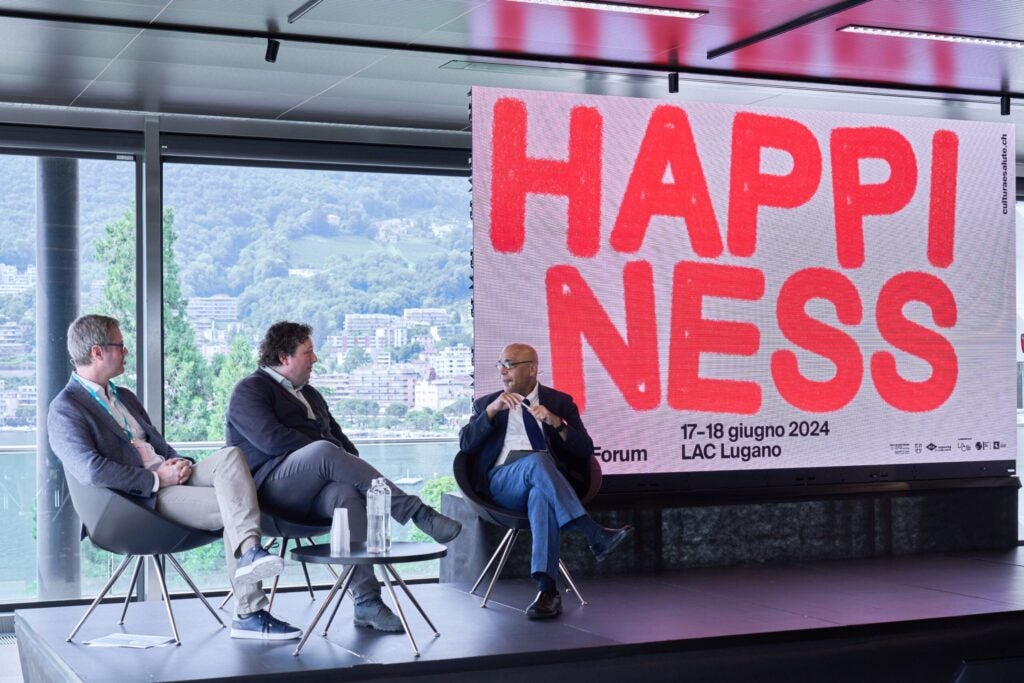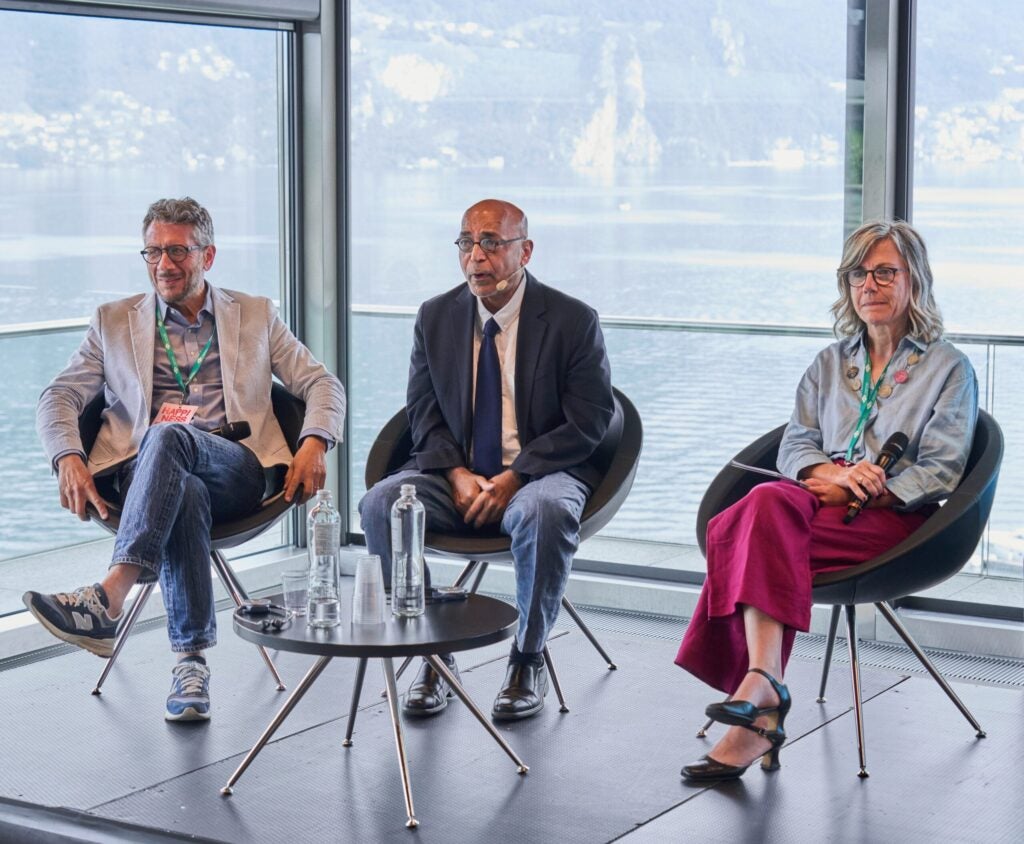- Social Factors and Happiness
- Social connection is a key factor in happiness
- Policies and urban planning should support social connections and community involvement
- Emphasis should be placed on collective, rather than just individual, well-being
- Global Happiness Trends
- Over the past decade, happiness has increased in Central and Eastern Europe and East Asia, but declined in North America, Australia, New Zealand, the Middle East, and North Africa, especially among youth
- Health Information
- Information significantly impacts health, well-being, and happiness
- It is important to provide credible and actionable health information and adapt to evolving communication technologies
- Youth
- Happiness is declining among youth in North America and elsewhere
- Inclusive decision-making and youth engagement in politics are critical
- Balanced digital media use is vital for youth well-being
- Workplace
- Happiness should be integrated into the workplace
- Leaders can promote happiness by fostering mindfulness and pro-social behaviors
- Art and Culture
- Art and culture promote social, psychological, and physical well-being
- This forum is just the beginning!
All photos and videos courtesy of the IBSA Foundation for scientific research
Article written by Ayla Fudala, Center Communications Coordinator
Last Updated
On June 17th and 18th, 2024, top experts, scientists, and decision-makers convened for the first Lugano Happiness Forum. Hosted in Lugano, Switzerland—which is consistently ranked as one of the happiest countries in the world— this event was a collaboration between the Lee Kum Sheung Center for Health and Happiness, led by Director K. “Vish” Viswanath, PhD; the IBSA Foundation for scientific research, led by Director Silvia Misiti, PhD; and the City of Lugano, led by Cultural Division Director Luigi Di Corato. The forum was a Carbon Neutral event, supported by +O Positive Organizations.
The goal of the Lugano Happiness Forum was to explore the mechanisms and principles underlying human happiness and well-being, to take stock of the latest theories and practices, and to promote multidisciplinary in the study and practice of happiness. More than 500 participants attended to learn from 22 leading thinkers from across the world. Two of these speakers were Center Director Viswanath and Center Research Associate Laura Marciano, PhD. Other speakers included John Helliwell, DPhil, editor of the World Happiness Report; Garth Graham, MD, Head of Healthcare and Public Health at Google and YouTube; and Enzo Grossi, MD, Scientific Director of the ‘Villa Santa Maria’ Institute of Italy. Many sessions were held, covering topics ranging from happiness from a corporate perspective, to promising practices in policymaking and science translation, to the measurement of happiness across countries and disciplines.
The event began on June 17th with opening remarks from Director Viswanath. Next, the keynote address was given by Julianne Holt-Lunstad, PhD, Director of the Social Connection & Health Lab at Brigham Young University, and founding scientific chair and board member for the US Foundation for Social Connection and the Global Initiative on Loneliness and Connection. As she did when she served as the first speaker in the Center’s Loneliness and Well-being Seminar Series, Holt-Lunstad addressed the global loneliness epidemic, citing the many negative mental and physical health outcomes of loneliness and social isolation. Having outlined the problem, she went on to provide the solution, arguing that “Social connection may be the key to understanding and addressing pressing societal issues.” She cited the US Surgeon General’s Advisory on Loneliness and Social Isolation, which she served as Lead Scientific Editor on, sharing six pillars to advance social connection. In conclusion, Holt-Lunstad emphasized the need to invest in policies and interventions to support the development and maintenance of social connections, in order to foster happiness and resilience in society.
 Next, Director Viswanath, in his talk emphasized the importance of social factors to happiness. He argued for the need to incorporate social and collective well-being into our definitions of happiness, as personal well-being is deeply interconnected with societal health and cohesion. Viswanath defined collective well-being as “an idea that individual happiness is nested within larger collectives, within which individuals experience positive emotions and feelings and find meaning and purpose in life”. Dimensions of collective well-being include community well-being, diversity and pluralism, equity and inclusiveness, and mobility and opportunity. He argued that shifting our focus from individual to collective well-being is particularly important now, due to factors such as the digital revolution, loneliness, aging societies, persistent inequalities, and global conflict and displacement. Viswanath concluding by stating, “What is a good life? What is it that makes life worth living? To me, it is collective well-being. When others are happy, we are happy.”
Next, Director Viswanath, in his talk emphasized the importance of social factors to happiness. He argued for the need to incorporate social and collective well-being into our definitions of happiness, as personal well-being is deeply interconnected with societal health and cohesion. Viswanath defined collective well-being as “an idea that individual happiness is nested within larger collectives, within which individuals experience positive emotions and feelings and find meaning and purpose in life”. Dimensions of collective well-being include community well-being, diversity and pluralism, equity and inclusiveness, and mobility and opportunity. He argued that shifting our focus from individual to collective well-being is particularly important now, due to factors such as the digital revolution, loneliness, aging societies, persistent inequalities, and global conflict and displacement. Viswanath concluding by stating, “What is a good life? What is it that makes life worth living? To me, it is collective well-being. When others are happy, we are happy.”
Following Viswanath’s talk, he moderated a Q&A with Julianne Holt-Lunstad. Holt-Lunstad discussed the complex role of social media in young people’s social lives, noting its potential benefits for marginalized individuals, as well as its small negative mental health effects. She highlighted the need for schools to foster connections and community involvement. Both Holt-Lunstad and Viswanath stressed the importance of evolving educational models to support social needs and adapting to new technologies like AI.
The next event featured John Helliwell, DPhil, editor of the World Happiness Report. Helliwell discussed the findings of the 2024 World Happiness Report, explaining that happiness levels vary significantly by age, gender, and region. Data from 2021-23 shows that, for the world as a whole, women are happier than men, and the young are happier than the old. However, these findings are not true everywhere. The gender gap is not significant in Western Europe, and in North America, the old are happier than the young.
Helliwell went on to share that over the past decade, Central and Eastern Europe and East Asia have seen significant happiness improvements across all age groups, while North America, Australia, New Zealand, the Middle East, and North Africa have experienced a decline, particularly among the young. Next year’s World Happiness Report will focus on social connection, and the following year’s report will focus on social media and artificial intelligence’s impact on global happiness.
Another expert who spoke on the first day of the forum was Garth Graham, MD, Head of Healthcare and Public Health at Google and YouTube. In this lecture, Graham argued that information significantly impacts health, well-being, and happiness. He contended that this became evident during the COVID-19 pandemic, where both information and misinformation had significant impacts on health outcomes. Therefore, the quality and accessibility of health information is crucial, and it is important to think collectively about solutions. Graham, as a representative of Google and YouTube, stated that their goal is to improve global health and happiness by providing credible and actionable health information and adapting to evolving communication technologies.
 On June 18th, the second day of the forum, Director Viswanath moderated a discussion with two experts: Martijn Burger, PhD, Director of the Erasmus Happiness Economics Research Organization (EHERO) and Professor of the Economics of Happiness at the Open University of the Netherlands; and Urs Bieri, MBA, Co-Director of gfs.berg of Switzerland, a political and communication research company. They explored factors influencing happiness and life satisfaction, such as walkable cities, cultural gatherings, and social media’s mixed effects on youth mental health. Burger emphasized the benefits of urban planning to promote social interaction, while Bieri noted the rising mental health issues among youth, partly attributing these changes to systemic challenges and social media. Both highlighted the need for inclusive decision-making and youth engagement in politics.
On June 18th, the second day of the forum, Director Viswanath moderated a discussion with two experts: Martijn Burger, PhD, Director of the Erasmus Happiness Economics Research Organization (EHERO) and Professor of the Economics of Happiness at the Open University of the Netherlands; and Urs Bieri, MBA, Co-Director of gfs.berg of Switzerland, a political and communication research company. They explored factors influencing happiness and life satisfaction, such as walkable cities, cultural gatherings, and social media’s mixed effects on youth mental health. Burger emphasized the benefits of urban planning to promote social interaction, while Bieri noted the rising mental health issues among youth, partly attributing these changes to systemic challenges and social media. Both highlighted the need for inclusive decision-making and youth engagement in politics.
 Next, Laura Marciano served as moderator for a Q&A with Karen Guggenheim, CEO and Founder of the World Happiness Summit® (WOHASU), an annual wellbeing conference; and Randy Taran, CEO and Founder of Project Happiness, a global nonprofit based in California. Taran and Guggenheim discussed the importance of promoting happiness through mindfulness and pro-social behaviors.
Next, Laura Marciano served as moderator for a Q&A with Karen Guggenheim, CEO and Founder of the World Happiness Summit® (WOHASU), an annual wellbeing conference; and Randy Taran, CEO and Founder of Project Happiness, a global nonprofit based in California. Taran and Guggenheim discussed the importance of promoting happiness through mindfulness and pro-social behaviors.
Later in the day, Enzo Grossi, MD, Scientific Director of the ‘Villa Santa Maria’ Institute of Italy, a home for children and adolescents suffering from neuropsychiatric disorders, spoke about the significant impact of cultural participation on well-being. Highlighting studies from the past two decades, Grossi demonstrated that engaging in cultural activities was a major determinant of well-being, second only to health status. He presented case studies and research, including an innovative experiment measuring well-being among adolescents with autism at a museum visit, and another involving stress reduction through art viewing. He concluded by arguing that, “Art and culture promote social, psychological, and physical well-being. Stakeholders need to be informed and involved in this inspiring revolution.”
Later, Laura Marciano gave a presentation on her “Happiness 2.0” project, which also utilizes the arts. Through a series of activities combining art and science, the project explores the complex relationship between social media use and adolescent well-being. Partnering with the IBSA Foundation for scientific research and Università della Svizzera italiana (USI), the project engages adolescents as well as their families, teachers, and schools.
After her presentation, Marciano served as one of the speakers in a Q&A moderated by Peter Schulz, PhD, Director of the Institute of Communication and Health at USI, Switzerland; alongside Aurélie Litynski, Founder of Happitude at Work. In this discussion, Litynski spoke about her journey as a Chief Happiness Officer, emphasizing the challenges and importance of integrating happiness into the workplace.
 As the forum concluded, the leaders of the three organizing bodies came together to give closing remarks. Center Director Viswanath, IBSA Foundation Director Silvia Misiti, and City of Lugano Cultural Division Director Luigi Di Corato expressed their deep gratitude towards all participants, speakers, and organizers for their contributions and dedication. Viswanath, Misiti, and Di Corato highlighted the importance of multidisciplinary approaches in addressing complex topics like happiness and well-being, and emphasized the need for inclusivity and consensus-building in public discourse. Director Viswanath concluded with a view towards the future, stating “This is the starting point for the conversation, not the end.”
As the forum concluded, the leaders of the three organizing bodies came together to give closing remarks. Center Director Viswanath, IBSA Foundation Director Silvia Misiti, and City of Lugano Cultural Division Director Luigi Di Corato expressed their deep gratitude towards all participants, speakers, and organizers for their contributions and dedication. Viswanath, Misiti, and Di Corato highlighted the importance of multidisciplinary approaches in addressing complex topics like happiness and well-being, and emphasized the need for inclusivity and consensus-building in public discourse. Director Viswanath concluded with a view towards the future, stating “This is the starting point for the conversation, not the end.”
Key Takeaways:
- Social Factors and Happiness
- Social connection is a key factor in happiness
- Policies and urban planning should support social connections and community involvement
- Emphasis should be placed on collective, rather than just individual, well-being
- Global Happiness Trends
- Over the past decade, happiness has increased in Central and Eastern Europe and East Asia, but declined in North America, Australia, New Zealand, the Middle East, and North Africa, especially among youth
- Health Information
- Information significantly impacts health, well-being, and happiness
- It is important to provide credible and actionable health information and adapt to evolving communication technologies
- Youth
- Happiness is declining among youth in North America and elsewhere
- Inclusive decision-making and youth engagement in politics are critical
- Balanced digital media use is vital for youth well-being
- Workplace
- Happiness should be integrated into the workplace
- Leaders can promote happiness by fostering mindfulness and pro-social behaviors
- Art and Culture
- Art and culture promote social, psychological, and physical well-being
- This forum is just the beginning!
All photos and videos courtesy of the IBSA Foundation for scientific research
Article written by Ayla Fudala, Center Communications Coordinator


